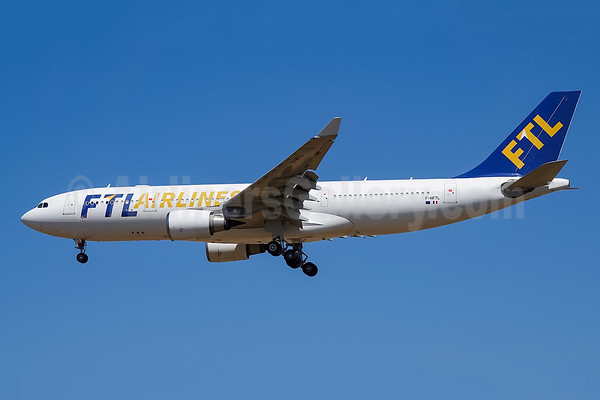
Hey, you! If you’re a veteran dreaming of taking to the skies, then listen up. We’ve got some insider tips on how to make the most of your GI Bill benefits for flight training. Whether you’re looking to become a commercial pilot or just want to soar through the clouds in your own plane, this article will show you exactly how to maximize your GI Bill benefits to make your aviation dreams take flight. So buckle up and get ready to learn how to make your journey to the cockpit smoother and more affordable than ever before. Let’s do this!
1. Understanding the GI Bill Benefits for Flight Training
The GI Bill provides a range of educational benefits to veterans, including flight training. Understanding these benefits is crucial for veterans who wish to pursue a career in aviation. Let’s explore the eligibility requirements, types of benefits available, and the advantages of utilizing the GI Bill for flight training.
1.1 Eligibility for GI Bill Benefits
To be eligible for GI Bill benefits, you must have served on active duty for a minimum period of time and received an honorable discharge. The specific requirements vary depending on the GI Bill program you are applying for. It is important to check with the Department of Veterans Affairs (VA) to determine your eligibility.
1.2 Types of GI Bill Benefits for Flight Training
There are several GI Bill programs that offer benefits for flight training. The most common programs are the Post-9/11 GI Bill and the Montgomery GI Bill. These programs provide financial assistance for tuition, fees, housing, and books and supplies. The Rural Veterans Rural Access Network for Growth Enhancement (RRANGE) program is another option specifically designed for veterans in rural areas.
1.3 Benefits of Utilizing GI Bill for Flight Training
Utilizing the GI Bill for flight training offers numerous advantages. Firstly, it provides financial support, covering the cost of tuition, fees, housing, and books and supplies. This can significantly reduce the financial burden of pursuing flight training. Additionally, the GI Bill offers a monthly housing allowance, which can help cover living expenses while attending flight school. Lastly, completing flight training with the assistance of the GI Bill can open doors to various career opportunities in the aviation industry.
2. Selecting an Eligible Flight Training Program
Choosing the right flight training program is crucial to make the most of your GI Bill benefits. Here are some factors to consider when selecting a flight training program.
2.1 Accreditation and Approval
Ensure that the flight training program you choose is accredited and approved by the appropriate aviation authorities. This ensures that the program meets the necessary standards and is recognized by potential employers. Accreditation by agencies such as the Federal Aviation Administration (FAA) or the Accrediting Commission of Career Schools and Colleges (ACCSC) is highly desirable.
2.2 Cost of Training Program
Consider the cost of the flight training program and compare it to the benefits provided by the GI Bill. Some flight schools may have high tuition fees, making it important to assess whether the GI Bill benefits will cover the full cost of your training. It is also worth exploring if there are any scholarships or financial aid options available specifically for veterans pursuing flight training.
2.3 School Location and Accessibility
Consider the location of the flight school and its accessibility to you. It may be more convenient to select a school that is closer to your residence, reducing travel time and expenses. Additionally, some flight schools may have partnership agreements with local airports, allowing for more accessible training facilities.

3. Applying for GI Bill Benefits
Once you have selected a flight training program, it is time to apply for GI Bill benefits. Here is a step-by-step guide on how to navigate the application process.
3.1 Gather the Required Documents
Before applying for GI Bill benefits, gather all the necessary documents. These may include your Certificate of Eligibility (COE) from the VA, your high school diploma or GED, DD-214 form, and any relevant transcripts or certifications. Having these documents ready will streamline the application process.
3.2 VA Eligibility Determination
Submit your application and supporting documents to the VA for eligibility determination. The VA will review your application and determine your eligibility for GI Bill benefits. This process can take some time, so it is important to apply well in advance of your desired start date for flight training.
3.3 Applying for Flight Training Benefits
Once your eligibility has been determined, you can apply for flight training benefits specifically. Fill out the necessary forms and provide any additional documentation required by the VA. Be sure to follow the instructions provided by the VA to ensure a smooth application process.
4. Understanding the Payment Structure
It is important to understand how GI Bill benefits for flight training are structured and how you will receive payments. Here are the key components of the payment structure.
4.1 Monthly Housing Allowance
The GI Bill provides a monthly housing allowance to help cover living expenses while attending flight school. The amount of the allowance is based on the location of the school and whether the student attends full-time or part-time. It is important to budget and plan accordingly to ensure the housing allowance is used wisely.
4.2 Tuition and Fees Coverage
The GI Bill covers a portion or the full cost of tuition and fees for flight training. The exact coverage will depend on the GI Bill program you are utilizing. It is essential to clarify the coverage with your flight school and to coordinate with the VA to ensure payments are processed correctly.
4.3 Books and Supplies Stipend
In addition to tuition and fees, the GI Bill provides a stipend for books and supplies. The amount of the stipend is determined annually and can be used to purchase required textbooks, flight manuals, and other necessary materials. Keeping track of eligible expenses and submitting receipts to the VA is important to receive the stipend.

5. Maintaining Enrollment and Academic Progress
To continue receiving GI Bill benefits, it is essential to maintain enrollment and make satisfactory academic progress. Here are some important points to keep in mind.
5.1 Enrollment Requirements for GI Bill Benefits
To remain eligible for GI Bill benefits, you must be enrolled in an approved flight training program as a full-time or part-time student. It is important to communicate any changes in your enrollment status to the VA promptly. Dropping below the required enrollment level could result in a reduction or loss of GI Bill benefits.
5.2 Academic Progress Requirements
To maintain GI Bill benefits, you must make satisfactory academic progress in your flight training program. This typically means maintaining a minimum GPA and successfully completing the required coursework. Flight schools may have additional academic progress requirements, so it is important to be aware of and adhere to these guidelines.
5.3 Reporting Changes to the VA
It is important to report any changes in your circumstances or flight training program to the VA promptly. This includes changes in enrollment status, program transfers, or any interruptions in your training. Failure to report changes could result in overpayment or loss of benefits.
6. Utilizing Additional Benefits
In addition to the GI Bill, there are other benefits and programs available to veterans pursuing flight training. Here are a few worth exploring.
6.1 VA Vocational Rehabilitation & Employment Program
The VA Vocational Rehabilitation & Employment (VR&E) program provides additional support for veterans with service-connected disabilities. This program can assist with funding flight training and related expenses for eligible veterans. Contact your local VA office to determine if you qualify for this program.
6.2 Post-9/11 GI Bill Top-Up Program
The Post-9/11 GI Bill Top-Up program allows veterans to use additional funds to cover the difference between the GI Bill benefits and the total cost of their flight training program. This program can help bridge any financial gaps and ensure the full cost of training is covered. Be sure to research the requirements and guidelines for this program to maximize your benefits.
6.3 Transfer of Benefits to Dependents
If you have remaining GI Bill benefits that you do not plan to use, you may have the option to transfer these benefits to your spouse or dependents. This can provide them with educational assistance and is an excellent way to maximize the impact of your GI Bill benefits for your entire family.
7. Understanding Potential Limitations and Exclusions
While the GI Bill offers significant benefits for flight training, there may be limitations and exclusions to be aware of. Understanding these can help you plan effectively and avoid any unexpected challenges.
7.1 Flight Training Included in GI Bill Coverage
Not all flight training programs are eligible for GI Bill benefits. It is important to choose a program that is approved by the VA and meets the necessary requirements. Flight training programs must be accredited and lead to a recognized certification or degree to be eligible for GI Bill coverage.
7.2 Training Expenses Not Covered by GI Bill
While the GI Bill covers many costs associated with flight training, there may be expenses that are not covered. These can include medical examinations, uniforms, aviation headsets, and other personal equipment or supplies. It is important to budget for these additional expenses and explore alternative funding sources if needed.
7.3 Duration of GI Bill Benefits for Flight Training
The duration of GI Bill benefits for flight training is limited. The Post-9/11 GI Bill benefits are typically available for up to 36 months of full-time training. The Montgomery GI Bill benefits have varying durations depending on the type of program. It is important to plan your flight training accordingly and utilize your benefits effectively within the allocated timeframe.
8. Exploring Scholarships and Financial Aid
In addition to GI Bill benefits, there are various scholarships and financial aid options available specifically for veterans pursuing flight training. Exploring these opportunities can further support your training goals and reduce your financial burden. Here are a few options to consider.
8.1 Scholarships for Aviation and Flight Training
Numerous organizations offer scholarships for veterans pursuing aviation and flight training. These scholarships can range from partial to full funding and can help cover the cost of tuition, books, and supplies. Research and apply for scholarships that align with your specific training goals and qualifications.
8.2 Financial Aid Options for Veterans
In addition to scholarships, veterans may be eligible for other forms of financial aid, such as grants or student loans. The Free Application for Federal Student Aid (FAFSA) is a valuable resource for exploring these options. Complete the FAFSA and consult with the financial aid office at your chosen flight school to determine the available financial aid opportunities.
8.3 Employer Sponsorship Opportunities
Some aviation and airline companies offer sponsorship programs for veterans pursuing flight training. These programs often provide financial support and may offer job opportunities upon completion of training. Research the companies in the aviation industry and inquire about any sponsorship programs they may have in place.
9. Taking Advantage of Flight School Benefits
Attending flight school offers more than just training – it can provide you with networking opportunities and valuable career connections. Here is how to maximize the benefits of flight school.
9.1 Flight School Networking and Career Opportunities
Take advantage of the networking opportunities available at your flight school. Connect with fellow students, instructors, and professionals in the aviation industry. Join aviation organizations, attend industry events, and create a strong professional network. These connections can lead to job opportunities and mentorship throughout your aviation career.
9.2 Accelerated Flight Training Programs
Consider enrolling in accelerated flight training programs if available. These programs offer intensive training schedules and can fast-track your progress towards achieving your certifications. While demanding, accelerated programs can help you save time and money while maximizing your GI Bill benefits.
9.3 Flight Instructor Certificate and Employment
Once you have completed your flight training, obtaining a flight instructor certificate can provide a valuable source of income while gaining experience. Becoming a flight instructor allows you to share your knowledge and skills with others while continuing to build flight hours. Many flight schools offer employment opportunities for their own graduates, so inquire about potential openings during your training.
10. Maximizing GI Bill Benefits for Flight Training Success
To make the most of your GI Bill benefits for flight training, follow these strategies to ensure success.
10.1 Develop a Comprehensive Education Plan
Create a comprehensive education plan that outlines your training goals and the steps you need to take to achieve them. Consider factors such as the duration of your GI Bill benefits, the cost of training, and any additional requirements or certifications you may need. Having a clear plan will help you stay focused and maximize your benefits.
10.2 Seek Guidance from Veterans Affairs Counselors
Take advantage of the resources available through the VA. Seek guidance from Veterans Affairs counselors who can provide support and answer any questions you may have about your GI Bill benefits. They can clarify eligibility requirements, provide information on additional programs, and help you navigate the application process.
10.3 Networking and Collaboration with Fellow Veterans
Connect with other veterans who have utilized or are currently utilizing their GI Bill benefits for flight training. Join online forums, attend veteran-focused events, and engage in discussions on social media platforms. Collaborating with fellow veterans can provide valuable insights, advice, and support throughout your flight training journey.
By understanding the GI Bill benefits for flight training, selecting the right program, and maximizing additional resources, you can make the most of your educational benefits as a veteran pursuing a career in aviation. Embrace the opportunities offered by the GI Bill and pursue your dreams in the skies.

